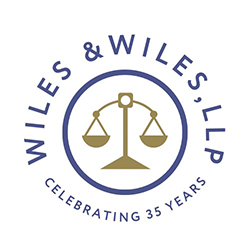Frequently Asked Questions About Landlord-Tenant Law in Georgia
Answers from respected commercial real estate lawyers in Marietta
We understand that landlord-tenant law is an area that prompts a lot of questions. At Wiles & Wiles, LLP, we have earned a reputation as The Landlord’s Lawyer℠. Below are some questions we often hear from our clients.
Landlord-tenant law
- Should I hire a real estate broker or a lawyer?
- What should I do if my tenant is complaining about a condition on the property?
- What are common risks in collecting rent?
- What are common risks for a landlord evicting a tenant?
- What is a 1031 exchange?
Commercial disputes
- How long is a domestic judgment good for in Georgia?
- If my judgment is older than seven years, can I collect?
Contact a Marietta landlord attorney today
Wiles & Wiles, LLP attorneys have guided landlords for 31 years from our offices in Marietta, GA. If you have additional questions, contact us at 770.426.4619 or online.
Landlord-tenant law
Should I hire a real estate broker or a lawyer?
Both a broker and a real estate lawyer can act as your agent in renting your property, however, their roles are quite different. A broker is typically most effective in locating a property that may be suitable for you. Brokers are familiar with market rates and can negotiate the business terms.
The lawyer can take the negotiated terms and draft them to both provide protection and to be enforceable. Furthermore, only a lawyer is permitted to give you legal advice regarding the terms of your lease. While both a broker and a lawyer can play a role, it is essential that each be used appropriately and that you hire an attorney for all legal issues involving your commercial property.
What should I do if my tenant is complaining about a condition on the property?
If there is a defect on your property, you may have an obligation to make repairs. If you do not make the repairs, the tenants may opt to do the repair themselves and deduct the costs from the rent. If the defect is so serious that it deprives the tenant of the use of the premises, the tenant may claim constructive eviction and move out.
What are common risks in collecting rent?
A landlord should always try to collect rent exactly as provided for in the lease. If the landlord permits deviations from the lease, those deviations may establish a new “course of dealing” that permits the tenant’s noncompliance with the terms, thus, delaying or preventing the landlord from being able to enforce its rights. Therefore, a landlord should always consult an attorney before making exceptions to the lease. Wiles & Wiles, LLP can evaluate your specific situation and provide advice on the steps necessary to make your lease enforceable.
What are common risks for a landlord evicting a tenant?
Perhaps the biggest risk is that the landlord will try to evict the tenant through self-help. Landlords who make use of self-help are often sued by the evicted tenants on a variety of grounds. To avoid potential liability, a landlord should follow the established legal procedures for an eviction. The attorneys at Wiles & Wiles, LLP have many years of experience with evictions and can help you avoid problems.
Commercial disputes
How long is a domestic judgment good in Georgia?
In general, a judgment is good for seven years in Georgia.
If my judgment is older than seven years, can I collect?
Without the help of an experienced attorney, you cannot collect on a judgment after seven years. In some instances, an attorney can revive an older judgment, but such a result should not be relied upon.

